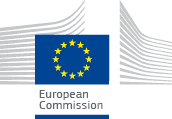
An unsettled issue in academia is how institutions form the basis for trust-relations. Based on a summary of studies of institutional-based trust, ISE researcher Lars Fuglsang and Søren Jagd argue that “sensemaking may serve as a bridge between institutional contexts and interpersonal trust processes”. It is further argued that institutions are rather ‘emerging’ than ‘impacting’.
Trust is by cognitive scientist Paul Lewicki defined as “confident positive expectations regarding another’s conduct”, while institutions by sociologist William Richard Scott are defined as “cognitive, normative and regulative structures and activities that provide stability and meaning to social behavior”. Sensemaking is by organizational theorist Karl Edward Weick defined as “ongoing retrospective development of plausible images that rationalize what people are doing”. Continue reading The actor-dimension of institutional-based trust









